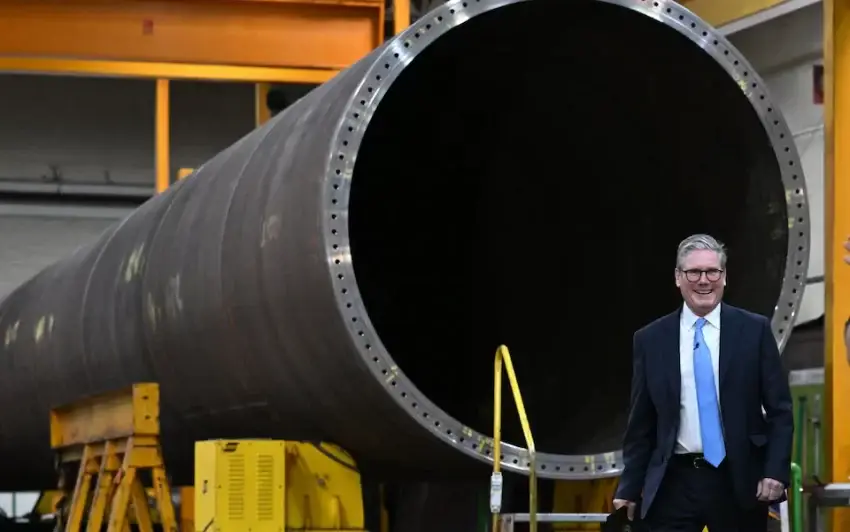Chancellor Rachel Reeves is set to disclose a staggering £19bn shortfall in public finances next Monday. This crucial announcement lays bare the fiscal challenges awaiting the Labour government.
Facing pressures for higher public sector wages and other inherited fiscal issues, Reeves plans to present an unembellished financial assessment to Parliament. The anticipated tax hikes aim to address this funding gap and prevent further financial decay.
Revealing the Financial Gaps
Chancellor Rachel Reeves is preparing to disclose a significant £19bn shortfall in the public finances. This announcement is scheduled for next Monday.
The shortfall includes pressures for higher public sector wages and other fiscal challenges inherited from the previous administration. An unembellished financial assessment will be presented to Parliament, with the date of the first Budget likely to be announced.
Assessing Departmental Finances
The Treasury will publish a detailed report on the state of public finances, based on the latest departmental figures. These figures reflect various assumptions made by different departments.
Policy experts have been anticipating Reeves’ announcement for months. An early audit identified approximately £19bn in ‘excess pressures’ for the 2024-25 financial year.
These pressures include the need for higher public sector wages. Reeves is expected to approve several inflation-adjusted pay agreements next week to prevent further strikes by public sector workers.
Avoiding Austerity
Labour leader Sir Keir Starmer has vowed there will be no return to austerity. He referenced the severe cuts implemented by George Osborne during the Coalition government of 2010.
However, any permanent spending increases will impact Reeves’ ability to meet fiscal rules. These rules require debt as a share of national income to be falling by the next general election.
Despite the difficult decisions ahead, Reeves is committed to approving several above-inflation pay deals. Officials are examining which expenses can be managed within existing budgets.
Potential Tax Increases
Experts warn that Reeves might need to raise taxes by up to £25bn this autumn to address spending pressures. This would be one of the toughest financial decisions she faces.
Labour pledged not to raise income tax, national insurance, or VAT during the general election campaign. Nevertheless, changes to pensions or inheritance tax reliefs might be considered.
One former Whitehall official explained, ‘Departments routinely overbid and then underspend billions of pounds. Then programmes get delayed or undersubscribed so payments aren’t needed. Departments do find efficiency savings if pushed by the Treasury.’
Economic Outlook and Budget Preparation
The scale of tax increases will depend on the economic outlook provided by the Office for Budget Responsibility (OBR). This insight will be crucial in the weeks leading up to the Budget.
Business Secretary Jonathan Reynolds noted key pledges made by the previous government were not properly budgeted. Some funds for these commitments were drawn from a £9.2bn Treasury reserve.
Reeves indicated that she is prepared to approve pay rises of up to 5.5% for millions of public sector workers. This is higher than the inflation rate of 2%, but necessary to prevent industrial action.
Challenges from Previous Administration
According to Whitehall sources, the exact figure for the financial gap is still being finalised. Adjustments could be made through efficiency savings or by delaying certain projects.
A Whitehall source noted, ‘They aren’t simple calculations because a lot of departments are making lots of different assumptions.’
The IMF warned in May that the Chancellor would need to implement £30bn of spending cuts or tax increases to stabilise the debt burden. Current spending plans of 1% above inflation are deemed unrealistic.
Pay Deals and Industrial Action
Reeves has signalled readiness to approve several above-inflation pay deals. This move aims to avoid further strikes by public sector workers.
The Chancellor will discuss which expenses can be covered within existing budgets. Departments might be pushed to find more efficiency savings.
It is rare for ministers to disregard the recommendations of pay review bodies, making Reeves’ stance notable.
Impact on Future Budgets
The OBR highlighted that central government spending this year is already £4.7bn above its March forecast. Tax receipts have fallen short as well.
The Treasury will assess the state of the government’s spending inheritance and present findings to Parliament before the summer recess.
Considerations for Tax Adjustments
The extent of tax increases will depend on the economic outlook from the OBR. This insight is crucial as Reeves prepares for her first Budget.
Labour may consider adjustments to pensions or inheritance tax reliefs, given the severe financial crisis.
The upcoming announcement by Rachel Reeves is set to lay bare the financial hurdles facing the government. Reeves’ commitment to avoiding austerity and addressing the £19bn shortfall indicates significant fiscal decisions ahead.
The need for increased public sector wages and potential tax hikes underline the complex landscape Reeves must navigate. Her readiness to implement above-inflation pay deals shows a resolve to avert disruptions, yet substantial hurdles remain.

